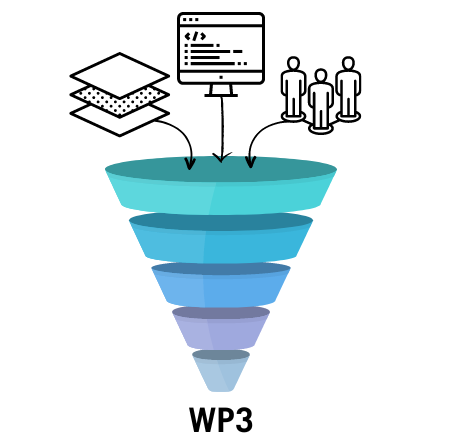WP 3 - Prioritisation tools and scenario development
WP3 Objectives
O3.1 – to review prioritisation approaches for systematic conservation planning
O3.2 – to develop decision tools for prioritisation and guidance for integrated planning
O3.3 – to develop guidelines for improved conservation planning, securing the resilience of the social-ecological system to cumulative human impacts, climate change and biological invasions
O3.4 – to define future scenarios based on the 10-tenets approach (ecological, technological, economic, political, social, administrative, legislative, cultural, ethical/moral, communicative aspects), transform them to planning options, and analyse trade-offs

Work Package Tasks
T3.1 Analysing current knowledge on systematic conservation planning and restoration
A systematic review and meta-analysis of prioritization approaches for implementing systematic conservation planning and restoration sites will be conducted with the help of the widely applied PRISMA (preferred reporting items for systematic reviews and meta-analyses) approach. This will lead to the identification and critical evaluation of the various methods and tools proposed for addressing key issues.
Lead: UNINA & UAEGEAN, partners: SZN, DTU, Thünen
T3.2 Developing MarinePlan decision tools for integrated planning and prioritization of sites in EB-MSP
T3.2 will advance existing prioritization approaches and tools by utilizing current knowledge and recommendations in conservation planning and analysing ecological and socio-economic criteria to set restoration targets. The outputs of WP1-2 will be integrated to develop prioritisation guidelines and tools, including specialized software and optimization algorithms, that will be applied by the Planning Sites. The proposed approaches aim to achieve cost-effective national and regional conservation targets and continuous flow and sustainability of ecosystem services, while considering functional connectivity, land-based threats, OECMs, anthropogenic impacts, climatic risk, and biological invasions. Dedicated workshops will be organized with external experts and stakeholders to address key issues in integrated planning and establish collaborations with other projects and scientific networks.
Lead: SZN & UAEGEAN, partners: All (except DFO)
T3.3: Developing planning scenarios
T3.3 focuses on defining future scenarios that consider all aspects of the socio-ecological system based on the 10-tenets framework (IECS). This will assess how the interactions among drivers impact the integration of ecological and socio-economic objectives in spatial conservation and restoration prioritization within EB-MSP. The scenarios will be co-developed with stakeholders, drawing from previous efforts in other European, and will be incorporated in the MarinePlan prioritization guidelines from T3.2. The scenarios will result in different operational targets and planning options for the Planning Sites, influencing the integration of biodiversity and socio-economic data layers into prioritization schemes. All Planning Sites will produce planning options that address the 2030-30%-10% target.
Lead: UAEGEAN & IECS, partners: All (except DFO)
Published Deliverables and Outputs
D3.1- Systematic review and metaanalysis of current knowledge on SCP
D3.2- Technicial report presenting the MarinePlan framework for integrated planning and expanding MPA networks
D3.3- Technical report describing the developed scenarios, accompanied by short factsheets in plain language


